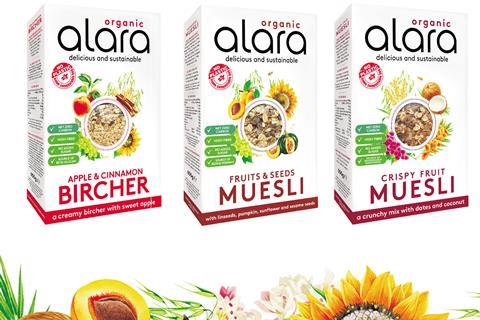
Alara Wholefoods has been handed over to its employees as founder Alex Smith looks to align the sustainable breakfast brand’s ownership structure more clearly with the values on which he started the company in 1975.
The business, which makes a range of organic muesli, porridge and bircher, formally moved into the employee-owned trust (EOT) scheme this week.
Smith said employee ownership was the best way to ensure the continuation of Alara’s mission-based ethos, as well as strengthening prospects for growth and development.
“Alara has been focused on sustainability for the last 50 years,” he added. “Since social equity is one of the key foundations of sustainability – and of such relevance given the glaring divergence of wealth between the many and the few – going down the EOT route seems absolutely appropriate for a sustainability-focused business.”
Smith was part of a squatter community in north London when he launched Alara using £2 that he found in the street. He used the money to get a van into New Covent Garden, picking up discarded fruit & vegetables to sell in a vacant shop unit in Camden.
“On our first day of trading we turned £2 into £4, doubling our capital,” Smith said.
The fledgling Alara Wholefoods shop was where Smith began to experiment with his muesli recipe. Today, the company claims to produce up to half of all the organic muesli sold in the UK from its factory in King’s Cross and generates annual revenues of about £5m.
Its Alara brand is stocked by Sainsbury’s, Ocado, Whole Foods Market and Planet Organic, and exported to Europe, the Middle East and Asia.
“Over the years, I have grown to appreciate the real value of money – less as something to possess and more as a tool with which to effect positive change,” Smith said. “So, my priority, as Alara moves into a new phase, is that the business is given the opportunity to further enhance the values that we established right at the beginning – standing for social fairness and championing sustainability.
“My message to our customers and suppliers is that this move will strengthen the Alara business, making it more resilient and adaptable. There is real confidence here about the future of the business and the market, signified by a further £150k investment that we have just commissioned at our factory at King’s Cross.”
Alara’s team of roughly 30 staff will now have a say in how the business is run, as well as having a financial stake in the company.
As a part of the EOT scheme, Alara will be run by its trustees, whose job it is to ensure the company is being well-led and in a way that maximises employee engagement and commitment. The management team will continue to be in charge of day-to-day operations.
According to the Employee Ownership Association (EOA), there are more than 1,400 employee-owned business in the UK.
“There is real excitement about the EOT concept among the whole Alara team and we are seeing our people really stepping up,” Smith added.
“We’ve got a very strong management team in place, who I’m confident will successfully take on more of the roles that I and managing director Katrina Smith currently perform, making us stronger than ever as a business.
“I think it’s important to recognise the context in which we are making this move at Alara. We are currently witnessing the breakdown of democratic norms, partly because of the huge divergence of wealth in our society. So, appreciating the opportunity that EOTs offer to mitigate that divergence in wealth – which they very clearly do – is one that I think should be seized.
“What this all means for Alara is that the people who work in the business will own it, and that the profits of the business will go to them rather than the shareholders. In other words, the employees will gain a full share in terms of rewards of success. To me, that is an appropriate sign of true progress and social equity.”
Smith said the Alara business continued to challenge itself to be the “most sustainable food manufacturer on Earth”.
The brand sources all its oat, barley and rye flakes from British growers, offering “a long-term contract and fair prices to farmers”. Its products are all net zero and it also claims to be the first cereal company to offer products in plastic-free, biodegradable film, made of eucalyptus cellulose.







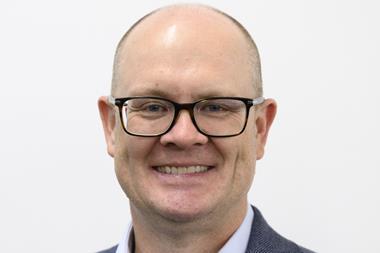
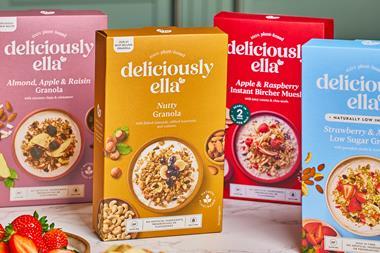
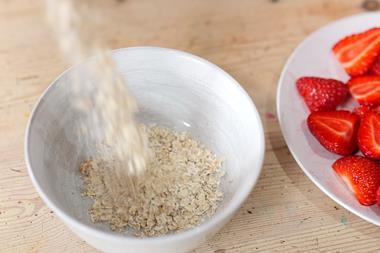

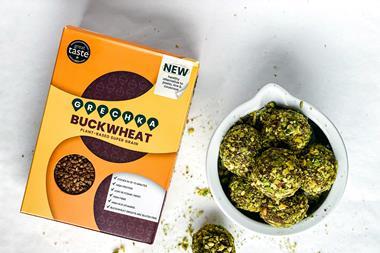







No comments yet